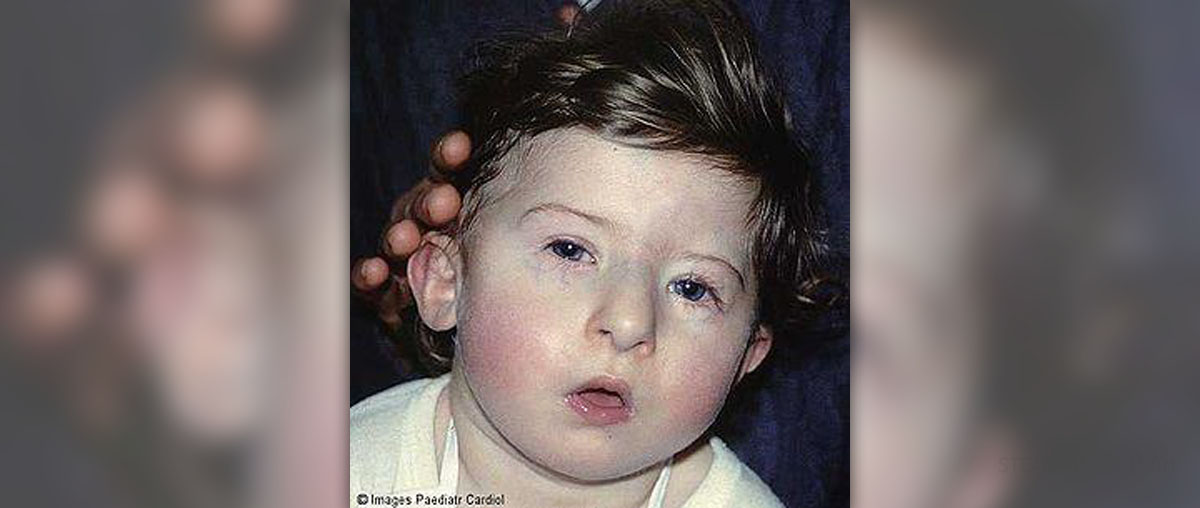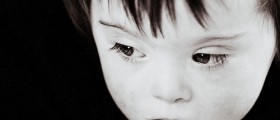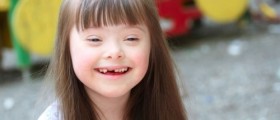
Prader-Willi syndrome is a rare medical condition which ispresent ever since the childbirth. It is a very serious condition as itcommonly involves a number of different sorts of behavioral, mental andphysical problems. The most prominent feature of this peculiar medical conditionis a constant sense of hunger which starts kicking in after the infant’s firstyear of life. This is why most people who suffer from Prader-Willi syndromeexperience much trouble with excess weight and sometimes even obesity. Thereare numerous different types of medical conditions which can be associated withthe early signs of Prader-Willi and those include poor sucking, poor muscletone and failure to thrive. It is because of those reasons that it is veryimportant to diagnose the condition promptly and with utmost accuracy. Oneshould take his or her child to the doctor if there are certain signs present,such as rag doll like limbs, lack of response to the touch, inability to wakeeasily and difficulties while feeding. Alarming signs commonly associated witholder children are slightly different as they include unusual food seekingbehaviors, constant hunger and rapid weight gain.
Risk Factors of Prader-Willi Syndrome
The main causing factor in the development of thePrader-Willi syndrome is the absence of a gene on a certain part of thechromosome 15. In normal conditions, both parents pass down a copy of thatchromosome onto their child. In most cases, the missing genetic material isassociated with the father’s chromosome.
Symptoms
Infants who are less than one year old commonly experiencecertain symptoms due to being affected by the Prader-Willi syndrome. Generally poorresponsiveness is one of them, commonly accompanied by a weak cry, difficultieswhen waking up, poor response to stimulation and unusual tiredness. Most casesalso include lack of eye coordination, which means that eyes may wander to theside, they may cross or they may not move together. This medical problem iscalled strabismus. Another common symptom is failure to thrive, which meansthat the affected child has a decreased muscle tone. This leads to poor suckingreflexes, difficulties when feeding and a rather slow weight gain. There aredistinct facial features associated with the early stages of the Prader-Willisyndrome and those include thin upper lip, turned down mouth, narrowing of thehead at the temples and almond shaped eyes. Another common sign in infancy is apoor muscle tone which is medicinally referred to as hypotonia. Childrenaffected by Prader-Willi syndrome commonly experience different symptoms intheir early childhood. Those symptoms usually persist throughout their entirelives and they need to be managed and treated rather carefully. A large numberof affected children experience abnormal curvature of the spine, which ismedicinally referred to as scoliosis. Different sorts of sleep disorders arealso fairly common among children affected by Prader-Willi syndrome, such assleep apnea and disruptions of the normal sleep cycle. A wide array ofdifferent sorts of behavioral problems may also occur. Poor articulation andspeech problems may be an ongoing problem for some children. Delayed motordevelopment is also quite common among kids who suffer from Prader-Willisyndrome. The same can be said for poor growth and physical development, whichare therefore closely related to certain types of learning disabilities.Hypogonadism is also fairly common feature concerning this medical condition. Itis easily described as an underdevelopment of sex organs. Abnormal food cravingand weight gain are the most common symptoms of the Prader-Willi syndrome.There are also certain other symptoms which may be present in some cases only,and those may include high-pain tolerance, light skin compared to the skin ofother family member and nearsightedness.
Complications
The Prader-Willi syndrome may also be associated withcertain medical conditions. Some of them are related to obesity andthose usually include sleep apnea, stroke, heart disease and in some cases eventype 2 diabetes. There are also certain other types of complications which areassociated to the childs inability to secrete sufficient amounts of the sexhormones. Sterility is one such complication. A low level of sex hormones mayalso lead to the development of a medical condition called osteoporosis.
How to Live with Prader-Willi Syndrome
A child that suffers from the Prader-Willi syndrome needs tobe picked up rather carefully due to an increased risk of slipping between theparent’s hands. There are certain steps which need to be taken in order toprevent binge eating. Some cases of Prader-Willi syndrome need to beaccompanied by minerals and vitamins in supplemental form. Frequent screeningtests need to be performed in order to keep scoliosis, osteoporosis anddiabetes in check. Those who have children affected by Prader-Willi syndromeare faced with quite a challenge and they need to arm themselves with extraamounts of patience.

















Your thoughts on this
Loading...